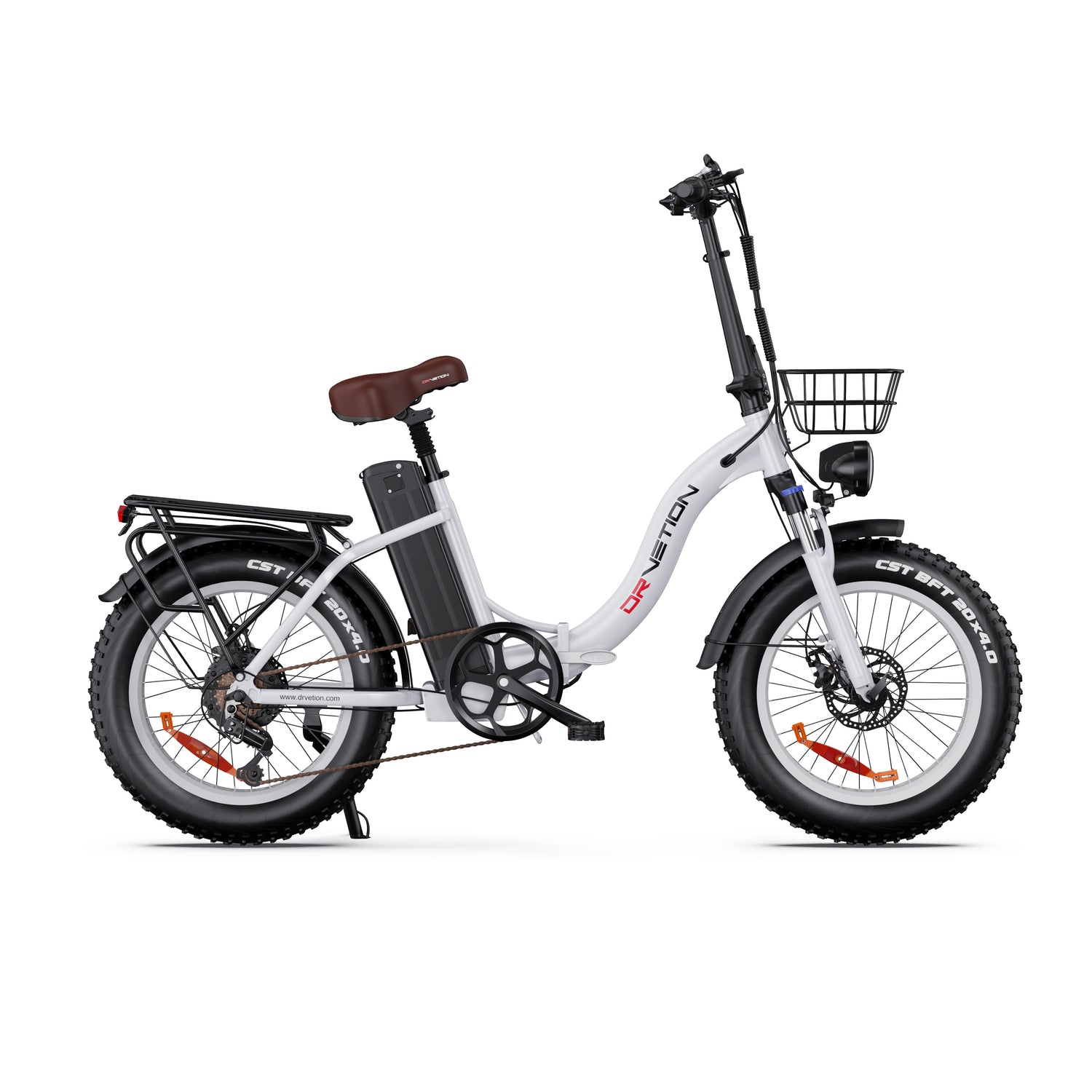E-bikes serve as an eco-conscious alternative to traditional petrol vehicles. Opting for a standard or folding model enhances both personal well-being and reduces carbon emissions. These factors position e-bikes as a superior environmental choice.

Zero Emissions
E-bikes utilize lithium-ion batteries to power electric motors, enabling faster travel than conventional bicycles while producing no harmful emissions. Urban air pollution – exacerbated by nitrogen oxides from diesel vehicles linked to respiratory diseases – remains a critical concern. E-bikes eliminate exhaust fumes, improving urban air quality while promoting physical fitness.
Battery Sustainability
Lithium-ion batteries offer a sustainable replacement for fossil fuels. Modern variants like DRVETION batteries are rechargeable, long-lasting (reaching up to 85 km per charge), and fully recyclable, preventing landfill waste.
Strategic Charging
Charging overnight maximizes environmental benefits. Energy demand typically drops during nighttime hours, allowing utilization of excess grid power. This approach reduces strain on resources and often incurs lower costs.
Energy Efficiency Comparison
E-bikes dramatically outperform conventional transport:
- 18x more efficient than SUVs
- 13x more efficient than saloon cars
- 6x more efficient than rail systems Carbon Reduction Impact
The emissions contrast is significant:
- Petrol vehicles emit ~8,887g CO₂ annually (6 metric tons per vehicle)
- E-bikes produce zero operational CO₂
- Solar-charged e-bikes achieve 100% renewable operation
- Diesel vehicles generate substantially higher emissions
Infrastructure Preservation
Weighing far less than cars, e-bikes minimize road wear. Reduced damage means fewer resource-intensive repairs and lower emissions from maintenance machinery.
Minimal Energy Demand
E-bike batteries require negligible power compared to motorcycles or cars. Commuting via e-bike just once weekly creates measurable environmental gains. As renewable energy expands globally, this advantage intensifies.
Durability & Recyclability
Designed for longevity, e-bikes support ongoing maintenance and repairs. Batteries are replaceable, ensuring components can be repurposed or recycled.
Off-Road Accessibility
Compact and agile, e-bikes traverse rugged terrain inaccessible to cars. Many national parks permit their use, enabling sustainable exploration of natural environments.

Health & Environmental Synergy
Medical research indicates 2.5 hours of weekly cycling improves health – easily achieved through e-bike commuting. This moderate exercise aids in managing obesity and type-2 diabetes while enhancing cardiovascular and mental wellness. Healthier communities naturally foster healthier ecosystems, making e-biking a dual-purpose solution.


